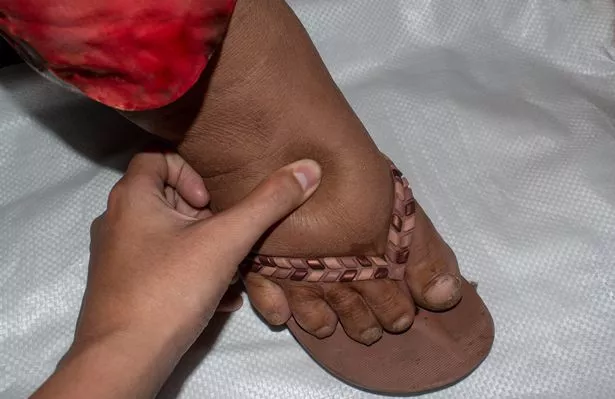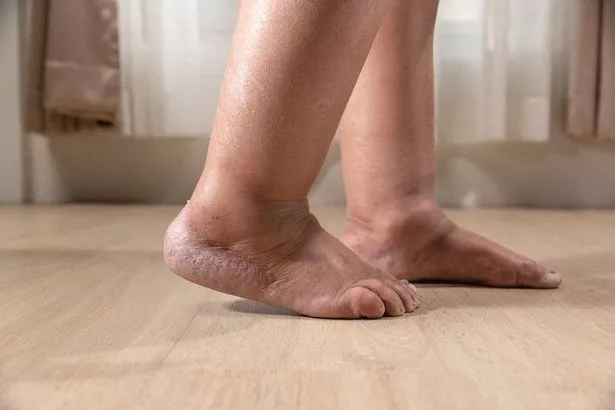This unusual sign could also indicate liver or kidney issues
06:31, 02 Sep 2025Updated 08:10, 02 Sep 2025
 A doctor warned people to look for an unusual symptom that appears when pressing down on the leg(Image: Getty)
A doctor warned people to look for an unusual symptom that appears when pressing down on the leg(Image: Getty)
A doctor has shared a five-second test you can do on your leg that could indicate heart failure. This simple method could also reveal signs of kidney or liver disease.
In a video posted to social media platform TikTok, Doctor Sermed Mezher, told his followers to look for pitting oedema. This occurs if you press down on the legs and the dent doesn’t quickly go away.
In some cases the cause of pitting oedema might be nothing to worry about, however, in others it could signal something serious. Dr Mezher said: “Even though it’s not a normal finding and can have some serious causes there are some innocent ones too.
“At its core it’s a sign that fluid is accumulating in the legs, whether that’s a sign of poor circulation or generally higher fluid levels in the body. If it’s mild and temporary it could just be from standing up for too long, heat exposure, pregnancy, or being overweight.”
Content cannot be displayed without consent
However, he cautioned that you should get it checked by a doctor. “If it’s more long lasting yes it could be a sign of poor vein function but also potentially of heart failure, kidney or liver disease or if one leg is more swollen than the other side, a clot in the leg,” he continued.
“Now even if someone comes to see me in the clinic with this I can’t immediately tell what the cause is I’ll need to do tests to differentiate, which can include things like bloods, echocardiogram, or potentially an ultrasound scan of the leg. So this is not something that you can just diagnose at home.
“So if you have pitting oedema, then see your doctor about it.”
 If the dent in your foot doesn’t go away quickly you should speak to your doctor(Image: Getty)Heart failure and pitting oedema
If the dent in your foot doesn’t go away quickly you should speak to your doctor(Image: Getty)Heart failure and pitting oedema
On its website, the NHS warns that oedema is a common phenomenon among heart failure patients. If the heart cannot pump blood properly around the body you get a build-up of pressure inside the blood vessels.
This then causes fluid to leak into the surrounding tissues. When listing signs of heart failure, the NHS says: “Swollen ankles and legs – this is caused by a build-up of fluid (oedema); it may be better in the morning and get worse later in the day.”
According to the NHS, “common” signs of heart failure include:
Breathlessness – this may occur after activity or at rest; it may be worse when you’re lying down, and you may wake up at night needing to catch your breathFatigue – you may feel tired most of the time and find exercise exhaustingFeeling lightheaded and fainting Oedema could also be a sign of kidney or liver problems(Image: Getty)
Oedema could also be a sign of kidney or liver problems(Image: Getty)
Less common signs include:
A persistent cough, which may be worse at nightWheezingA bloated tummyLoss of appetiteWeight gain or weight lossConfusionA fast heart rateA pounding, fluttering or irregular heartbeat (palpitations)
If you experience any symptoms you should speak to your GP.

